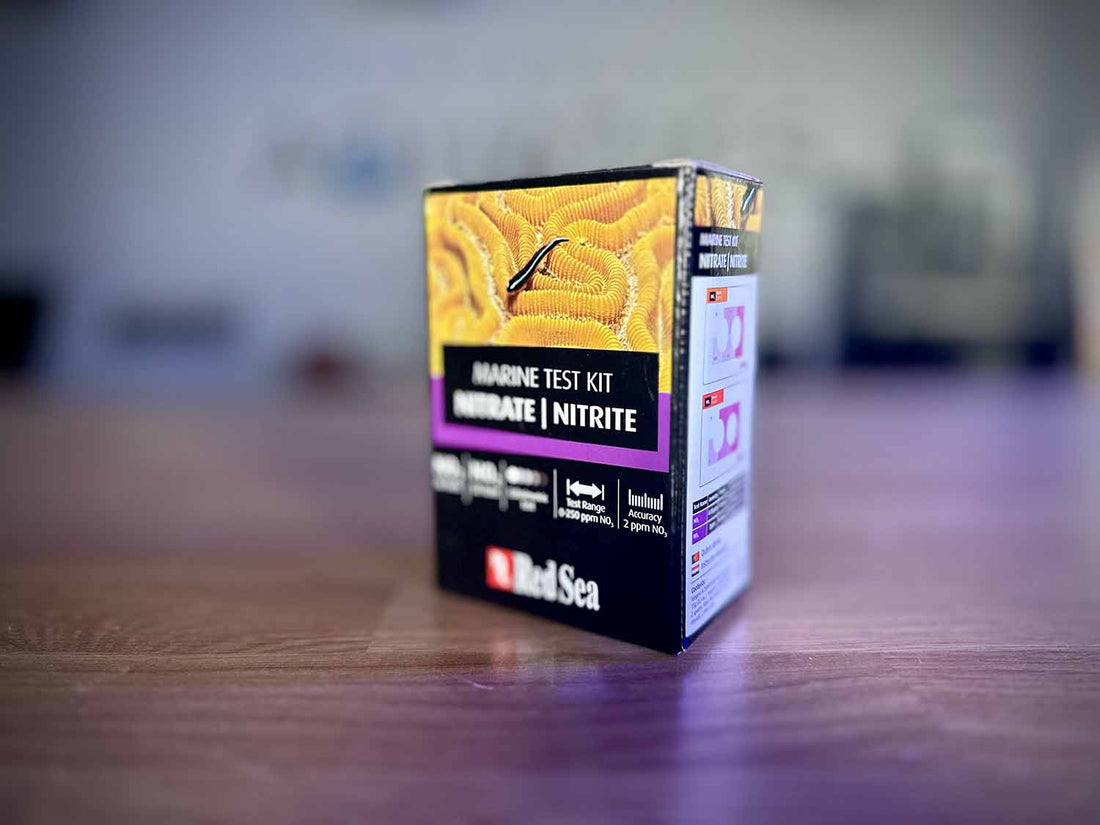Maintaining a healthy reef tank requires careful monitoring of various water parameters, and nitrite levels are among the most critical. Elevated nitrite levels can be detrimental to marine life, causing stress and potentially fatal conditions. This blog post will delve into the causes of nitrite in reef tanks, its effects on marine life, and effective solutions to manage and reduce nitrite levels. We’ll also provide links to top products available at Charterhouse Aquatics to help you maintain optimal water quality.
What is Nitrite?
Nitrite (NO2-) is an intermediate compound in the nitrogen cycle, formed during the breakdown of ammonia by nitrifying bacteria. In a well-established reef tank, nitrite is typically converted quickly to nitrate (NO3-) by beneficial bacteria. However, various factors can disrupt this balance, leading to elevated nitrite levels.
Causes of Elevated Nitrite Levels
1. New Tank Syndrome
In newly established tanks, the biological filtration system is not fully developed. This condition, often referred to as "new tank syndrome," can result in temporary spikes in nitrite levels as beneficial bacteria colonies are still maturing.
2. Overfeeding
Excessive feeding can lead to an accumulation of uneaten food and organic waste, which decompose into ammonia and subsequently nitrite. Managing feeding practices is crucial to prevent these spikes.
3. Overcrowding
Too many fish and invertebrates in the tank can produce more waste than the biological filtration can handle, resulting in elevated nitrite levels.
4. Inadequate Filtration
A filtration system that is not functioning properly or is undersized for the tank can fail to process ammonia and nitrite effectively, leading to dangerous levels.
5. Disrupted Nitrogen Cycle
Disruptions in the nitrogen cycle, such as a die-off of beneficial bacteria due to medication use or sudden changes in water parameters, can cause nitrite levels to rise.
Effects of Nitrite on Marine Life
Elevated nitrite levels can have severe effects on marine life, including:
1. Nitrite Poisoning
Nitrite interferes with the ability of blood to transport oxygen, leading to a condition known as methemoglobinemia or nitrite poisoning. Symptoms include lethargy, rapid breathing, and brownish gills.
2. Stress and Immunity Issues
High nitrite levels cause stress in fish and invertebrates, weakening their immune systems and making them more susceptible to diseases and infections.
3. Reduced Growth and Reproduction
Chronic exposure to elevated nitrite levels can stunt growth and impair reproductive functions in marine life.
Solutions to Manage and Reduce Nitrite Levels
1. Regular Water Testing
Frequent testing of water parameters is essential to detect and address nitrite issues promptly. Use a reliable test kit to monitor nitrite levels regularly.
Recommended Product: API Saltwater Master Test Kit
2. Perform Water Changes
Regular water changes help dilute nitrite concentrations and remove organic waste that contributes to nitrite buildup. Aim for 10-20% water changes weekly.
3. Use Biological Filtration
Ensure your tank has adequate biological filtration to support a healthy colony of nitrifying bacteria. Live rock and bio-media are excellent options.
Recommended Product: Seachem Matrix Bio Media
4. Add Nitrifying Bacteria
Supplementing your tank with nitrifying bacteria can help establish and maintain the nitrogen cycle, especially in new setups or after disruptions.
Recommended Product: Fritz Nitrifying Bacteria
5. Reduce Feeding
Feed your fish sparingly and remove any uneaten food to prevent excess organic waste from decomposing and producing nitrite.
6. Use Chemical Filtration
Chemical filtration media, such as zeolite or specific nitrite-absorbing resins, can help remove nitrite from the water.
Recommended Product: Fluval Zeo-Carb
7. Maintain Proper Stocking Levels
Avoid overcrowding your tank to ensure that the biological filtration can adequately process waste produced by the inhabitants.
Conclusion
Understanding and managing nitrite levels in your reef tank is crucial for the health and well-being of your marine life. By identifying the causes of elevated nitrite levels and implementing effective solutions, you can maintain a stable and thriving reef environment. Explore the range of products available at Charterhouse Aquatics to support your reef tank maintenance and ensure optimal water quality.
For all your aquarium needs, trust Charterhouse Aquatics to provide top-quality products and expert advice. Invest in the right tools and solutions to keep your reef tank healthy and vibrant.


